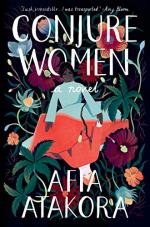|
This section contains 3,834 words (approx. 10 pages at 400 words per page) |

|
Freedom
Although structurally the novel appears to alternate between two opposing conditions – slavery and freedom – Atakora’s central premise is that these states of being are not in opposition at all. Rather, the lives of the ex-slaves (Rue’s especially) are hampered by dread, suspense and self-constraint: “Freedom wasn’t free” (130). At the end of the war, freedom strikes the community as “useless,” a “nonsense word,” and they are unsure “what good it might do them” (50). Rue “had never seen that thing the Yankees were promising – freedom – and she did not trust in what she could not see” (385). In the years that follow, understanding how precarious their new liberty is, she lives in fear of the white authorities discovering that Varina is no longer in charge of the plantation. Her hostility towards Bruh Abel is based on jealousy and suspicion of his inspirational teachings and roaming lifestyle...
|
This section contains 3,834 words (approx. 10 pages at 400 words per page) |

|




